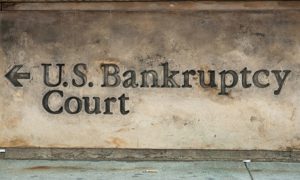 NJOY, one of the best-known and longest-established U.S. e-cigarette makers, has filed for bankruptcy.
NJOY, one of the best-known and longest-established U.S. e-cigarette makers, has filed for bankruptcy.
The firm cites the market failure of its upgraded King disposable product in 2013-2014, followed by expenditure on relaunching the NJOY brand itself.
It also mentions the “substantial expenses” of preparing for the Food and Drug Adminstration (FDA) deeming regulations and complying with state laws, as well as the cost of defending the patent infringement case brought against it and other e-cig companies by Imperial Tobacco’s Fontem Ventures.
While its largest single creditor – to the tune of $4m – is casino operator Caesars Entertainment, as a result of a sponsorship agreement, a similar amount is owed to a number of law firms. A declaration by Jeffrey Weiss, NJOY’s interim president and general counsel, says it had spent $2.5m on the Fontem defence alone.
In all, privately-held NJOY had liabilities of $32m at 30th June, of which $14m was owed to trade creditors.
Under the chapter 11 petition to the bankruptcy court in Delaware, NJOY is seeking to carry on in business, paying staff and certain suppliers essential to its operations while it tries to sell its assets.
The company hired Barclays Capital to find a buyer at the beginning of this year, but was unable to make a deal.
Although it has been practising what Weiss describes as a “cash preservation strategy…selectively holding back vendor payments”, it believes that funds will be available to pay unsecured creditors.
A hearing is set to be held today in the United States Bankruptcy Court for the District of Delaware, the state where NJOY – like many American corporations – is registered for tax and legal reasons, although its operations are based in Scottsdale, Arizona.
NJOY now has around 4.5% (by dollar value) of the U.S. market in mainstream retailers, according to Nielsen, a share which is down from 25% in 2013.
Over its history it has racked up accumulated losses of nearly $235m.
But it says its products are still present in 21,249 stores, including seven of the top ten supermarkets and 23 of the top 25 convenience store chains. Sourcing its hardware from two Chinese factories and e-liquid from U.S. manufacturers, it has 15 full-time employees as well as four from agencies.
NJOY was founded in 2006 as Sottera, under which name it was a party in the famed legal case which forced the FDA to regulate e-cigarettes as tobacco products rather than medical devices. It became NJOY in 2012.
What This Means: While some will doubtless portray NJOY as the first high-profile victim of the deeming regulations, and it is true that they might have deterred investors from coming to its rescue, the reality seems to be that its problems largely lie in the decline of the King brand – sales were down from $93m in 2013 to $7.4m in 2015 – and an inability to hold its own in the new world of open systems, combined with high costs.
– Barnaby Page ECigIntelligence staff
Photo: Pepper Hamilton






